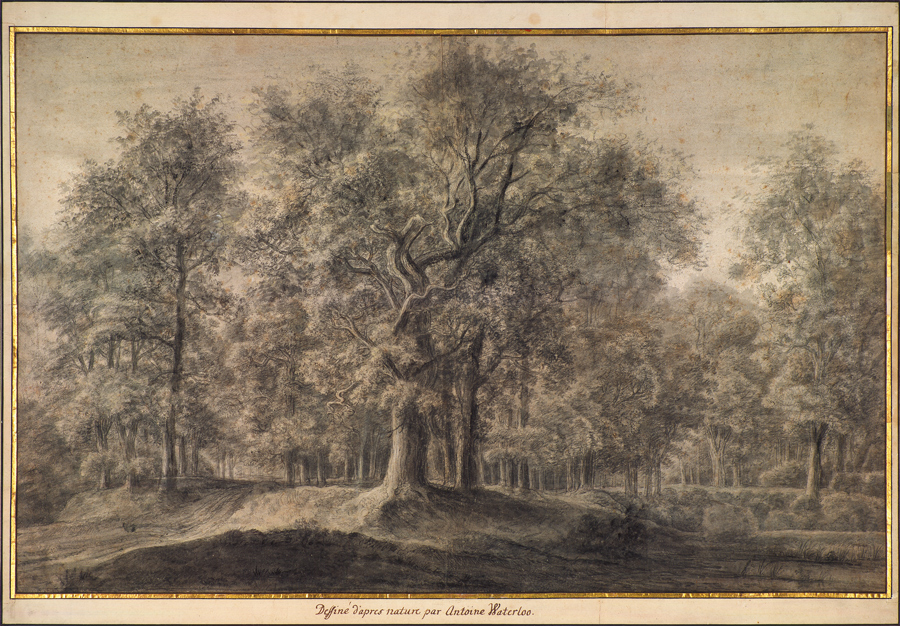Loading the page ...
Anthonie Waterloo
(ca. 1610 Lille – 1690 Utrecht)
A Wide, Wooded Landscape. Black chalk, gray and black wash, charcoal soaked in linseed oil. 40.7 x 63.7 cm.
This imposing work is a characteristic example of a group of large-format, finished landscape drawings, which Waterloo apparently intended for sale. The landscape is striking for its atmospheric density and a grandeur that is reminiscent of Jacob van Ruisdael. The branches and foliage of the individual trees are rendered with unusual vividness and variety. The mighty oak in the centre of the composition, whose leaves reach right up to the top of it, is on a monumental scale and its exuberant growth seems to act as a metaphor for the impetuous vitality of nature. At the same time the dead stump at the top end of the tree trunk also symbolizes its immanent decay. On the left, a solitary woodland path leads down out of sight, while the pond in the right foreground is enlivened by neither man nor beast. A massive silence reigns. The terrain in the foreground is in dark shadow, while filtered sunlight lights up the branches of the oak. Waterloo’s technique is one of marvellous refinement. Sweeping, airy washes alternate with areas of fine and painstaking detail; the charcoal soaked in oil produces striking dark effects.
In view of the vitality and spiritedness of Waterloo’s approach to nature one can understand the admiration the artist enjoyed in the 18th century. The mounting sheet, which probably dates from this period, bears the following old inscription in pen and ink: "Dessiné d’après nature par Antoine Waterloo". Nevertheless, Waterloo executed large-format landscape drawings of this kind not from nature, but in his studio. To this end he employed great skill in combining individual landscape motifs from sketches he had, indeed, made in the open.
